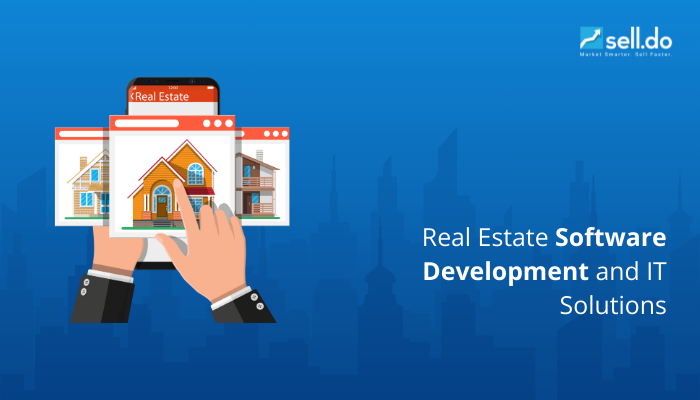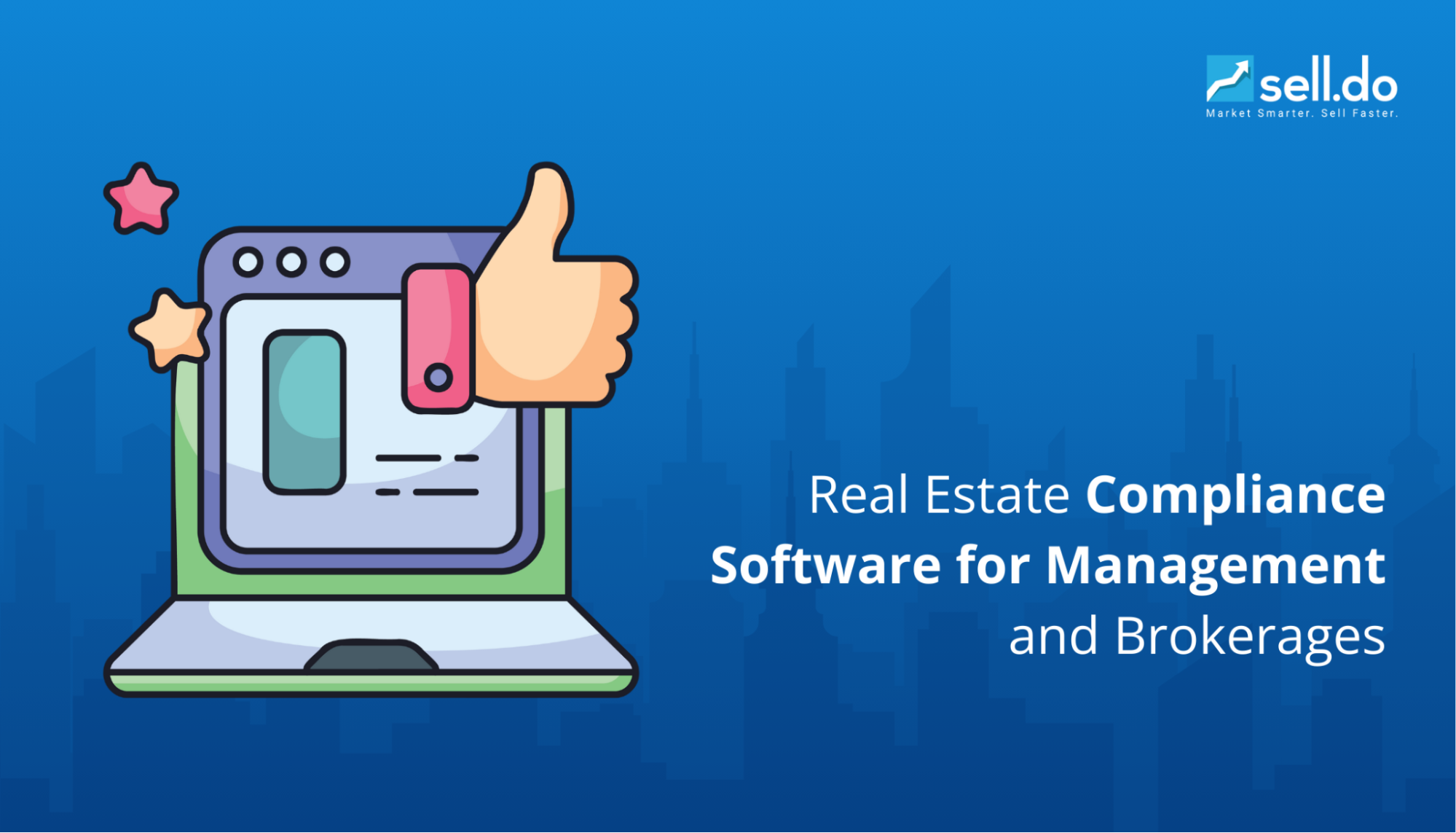Managing clients, tracking leads, and closing deals require more than just market knowledge—it takes a structured approach to stay on top of every opportunity. Without a clear system, follow-ups get missed, deals take longer, and potential clients slip away. This is where a CRM strategy becomes essential. A well-planned approach helps real estate businesses organize data, improve client interactions, and automate daily tasks, making sales and relationship management more effective.
Let’s explore why having a CRM strategy is crucial for real estate success and how it can transform the way you manage your business.
Challenges in the Real Estate Sector
Managing real estate operations without a structured system leads to inefficiencies that slow down growth. Teams struggle with unorganized data, follow-ups are missed, and decision-making becomes reactive rather than strategic. Additionally, many businesses rely on scattered tools that don’t integrate well, causing confusion and increasing manual work.
Selling Challenges
Inefficient sales processes and missed opportunities can lead to lower conversions and client dissatisfaction.
- Lost Leads & Missed Follow-Ups: Without a structured lead tracking system, brokers struggle to keep up with inquiries. Potential buyers lose interest, leading to missed opportunities and lower conversion rates. In fact, 40% of buyers drop off due to unclear communication during launches.
- Limited Visibility on Inventory & Payments: Brokers risk over-promising or mismanaging deals without a real-time view of available properties and payment status. Manual tracking increases the chances of delays, errors, and dissatisfied clients. Mismanaged demand and pricing lead to 30% of inventory remaining unsold post-launch.
- Inconsistent Client Communication: Every client expects timely and personalized communication. However, messages can be delayed, inconsistent, or even forgotten without centralized data, weakening relationships and reducing referrals.
- Heavy Manual Workload: Sales teams spend excessive time on paperwork, follow-ups, and administrative tasks that could be automated. This workload limits their ability to focus on high-value activities like selling and client engagement. 50% of channel partners report delays in responses during the critical EOI stage, impacting early-stage conversions.
To address these issues, you can use Sell.do, a dedicated CRM for real estate that guarantees 100% lead collection and source labeling. Brokers can monitor available units using its real-time inventory management, which helps them avoid overpromising and poorly handled transactions. It offers omnichannel communication features that can help you engage with leads more quickly and maintain smooth contact. Additionally, your team can concentrate on selling when documentation and follow-ups are automated.
Technological Challenges
Outdated systems and disconnected tools create inefficiencies, making it harder to manage data, automate tasks, and scale operations effectively.
- Scattered Data & Disjointed Processes: Sales, marketing, and inventory teams often work on separate platforms, leading to inefficiencies. Without centralized data, brokers waste time switching between systems, increasing errors and miscommunication.
- One-Size-Fits-All Software: Many generic CRMs lack real estate-specific features like property inventory management, site visits, and automated follow-ups. Brokers often have to adjust their workflows to fit the software rather than using a system tailored to their needs.
- Integration & Support Issues: Disconnected tools require manual data transfers, slowing down processes and increasing errors. Additionally, some CRMs offer limited support, making it difficult for businesses to implement and utilize the software fully.
Sell.Do makes real estate sales easier with a CRM designed specifically for your industry. It’s the highest-rated real estate CRM on G2, built to centralize data, automate processes, and eliminate inefficiencies. With over a decade of expertise, it ensures smooth integration with your existing tools, reducing manual work and improving productivity.
Launch Challenges
A study involving 200+ developers and real estate professionals across India highlighted major barriers to real estate launches. These challenges impact efficiency, buyer experience, and overall sales performance.
- Operational Inefficiencies: Manual processes and lack of integration slow down launches, causing delays and missed opportunities.
- Customer Confusion: Limited transparency in booking and payments leads to distrust, with 85% of site visits resulting in no booking due to a lack of engagement tools.
- Demand Mismanagement: Inefficient allocation and poor inventory tracking result in lost revenue. Properties often remain unsold because of pricing mismatches and delayed responses, affecting overall launch success.
Simplify your launches with Sell.Do’s automated EOI and token generation, making buyer commitments faster. The real-time tracking of buyer intent helps you focus on serious buyers, while transparent booking and payment dashboards keep everything organized. Features like gamification with offers and discounts, E-KYC, and digital signatures make transactions smoother, helping you close deals more efficiently.
A structured, technology-driven approach is essential to overcoming these challenges, ensuring smoother operations, increased sales, and an improved buyer experience. Developers who integrate digital solutions into their launch strategy see up to 20% higher conversion rates, making technology adoption a necessity rather than an option. Below, we have explained how a real estate CRM can help.
You can also check our blog, Conducting SWOT Analysis for Real Estate Agents and Businesses, to assess and build a strong strategy to grow your business.
How a Real Estate CRM Can Help Overcome These Challenges
A real estate CRM helps overcome industry challenges by keeping client interactions organized, automating daily tasks, and offering valuable insights for better decision-making. It serves as a single platform where real estate businesses can manage properties, leads, and payments efficiently. Instead of relying on multiple tools, brokers and developers can handle the entire sales process in one system, ensuring better control and smoother operations.
Here are the benefits of implementing a real estate CRM:
- No More Missed Leads & Follow-Ups: Automated lead tracking and reminders ensure every inquiry is followed up on time, improving conversion rates.
- Seamless Collaboration Across Teams: Sales, marketing, and finance teams work on a single platform, ensuring smooth handovers and eliminating data silos.
- Complete Visibility on Inventory & Payments: Real-time updates on property availability and automated payment tracking reduce errors and mismanagement.
- Consistent & Personalized Client Communication: CRM tools allow businesses to send targeted emails, messages, and alerts, ensuring better engagement and higher referrals.
- Reduced Manual Effort: Automation minimizes paperwork, follow-ups, and data entry, allowing sales teams to focus on closing deals.
- Tailored Features for Real Estate: Unlike generic CRMs, real estate-specific systems offer tools like inventory tracking, payment scheduling, and site visit management.
- Integrated & Scalable System: Businesses no longer need multiple disconnected tools. A CRM integrates seamlessly with marketing platforms, property portals, and finance systems.
- Enhanced Security & Compliance: Advanced data protection features ensure client information is secure and compliant with industry regulations.
To fully leverage the benefits of a real estate CRM, it's important to choose one with the right features tailored to the industry's needs. Here are the key capabilities to look for when selecting a CRM for your real estate business.
If you’re struggling to generate leads for your real estate business, here are some Strategies to Generate Free Real Estate Leads that you can implement immediately.
Key Features to Look for in a Real Estate CRM
When choosing a real estate CRM, look for these essential features to ensure seamless operations and better sales outcomes:
- Lead Scoring & Management: A good CRM should help prioritize leads based on their engagement and intent, allowing your sales team to focus on prospects most likely to convert.
- Task & Workflow Automation: Automating follow-ups, appointment scheduling, and reminders can save time and reduce manual efforts, helping brokers close deals more efficiently.
- Email & Communication Integration: The CRM should centralize all client interactions—emails, calls, and messages—so no conversation is lost, ensuring smooth communication.
- Inventory & Payment Tracking: Real-time updates on property availability and payment status prevent delays, mismanagement, and lost sales opportunities.
- Reporting & Analytics: Data-driven insights on sales performance, customer behavior, and market trends allow businesses to refine strategies and improve decision-making.
- Mobile Accessibility: A CRM with a mobile-friendly interface ensures that agents and brokers can manage leads, update listings, and respond to clients anytime, anywhere.
Selecting a CRM with these features will help real estate businesses stay organized, improve efficiency, and drive better results. This is why we suggest Sell.do.
Introducing Sell.Do: Dedicated CRM for Real Estate!

Most CRMs aren't built for the complexities of real estate. They lack essential tools, forcing teams to rely on inefficient workarounds. Sell.Do is designed specifically for real estate professionals, offering an end-to-end solution that simplifies sales, marketing, and customer management. From lead capture to final booking, every feature is tailored to address industry challenges.
Unlike generic CRMs, Sell.Do integrates property inventory, payment tracking, and site visit management within a single platform. Developers, brokers, and agencies can manage their entire sales pipeline, automate repetitive tasks, and gain real-time insights—without juggling multiple disconnected tools.
Features That Set Sell.do Apart:
End-to-End Lead & Sales Automation
- Capture leads from property portals, social media, and offline channels.
- Automate follow-ups with AI-driven reminders to ensure no lead goes cold.
- Use predictive analytics to identify high-intent leads and prioritize outreach.
Smart Inventory & Pricing Control
- Maintain a 360° real-time inventory view for all stakeholders.
- Use AI-driven pricing algorithms based on demand trends.
- Automate allocation to prevent double bookings.
- Generate instant quotations with preapproved pricing schemes.
Omnichannel Communication & Engagement
- Connect with clients via WhatsApp, SMS, email, and voice calls—all in one place.
- Automate responses and track all conversations seamlessly.
- Use gamified tools to boost engagement and conversions.
EOI & Token Management
- Automate Expression of Interest (EOI) and token generation.
- Track buyer intent in real-time for faster decision-making.
Seamless Payment & Documentation
- Offer transparent payment schedules and multi-mode payment options.
- Automate invoice generation, overdue reminders, and payment tracking.
- Generate booking forms, allotment letters, and agreements with a single click.
Real-Time Reporting & AI-Powered Insights
- Access detailed dashboards on lead performance, sales forecasts, and ROI.
- Predict demand trends and optimize pricing for maximum revenue.
Channel Partner Hub
- Streamline onboarding and performance tracking for channel partners.
- Automate commission payouts for transparent and efficient management.
Secure, Scalable, and Tailored for Real Estate
- Ensure smooth, conflict-free launches with a CRM built exclusively for real estate.
- ISO 27001-certified security and scalable infrastructure for high-volume transactions.
- Works seamlessly with property portals, ERP systems, and payment gateways.
Why Sell.Do is the Right Choice?
Over 1,000+ real estate brands trust Sell.Do to streamline operations, enhance sales, and improve customer engagement. With 50 million+ leads managed and 450 million+ customer interactions handled, Sell.Do has transformed how real estate businesses manage their sales pipelines.
Leading developers have seen remarkable success with Sell.Do’s industry-specific features. Casagrand secured 400 bookings in just one month, with 50% of bookings driven directly by CRM data. Mahindra Happinest managed 10,000+ leads and pioneered India’s first zero-touch, digital-only project launch, showcasing how Sell.Do empowers businesses to embrace digital transformation.
Sell.Do is more than just a CRM—it’s a secure, ISO 27001-compliant solution designed to eliminate inefficiencies and help real estate businesses scale effortlessly.
Conclusion
A well-structured CRM strategy is essential for any real estate business looking to improve sales, enhance customer relationships, and stay ahead in a dynamic market. Without the right system, real estate businesses struggle with scattered data and inefficiencies that slow down growth.
Implementing a real estate-focused CRM like Sell.Do ensures seamless lead management, better team collaboration, and data-driven decision-making. With its industry-specific tools, businesses can streamline sales, improve customer interactions, and drive higher conversions.
Now is the time to invest in a CRM that understands real estate. Start transforming your business with Sell.Do today.






Leave a comment
Comments (4)
Interesting read! My team would learn a lot just by reading this.
Leave a ReplyCustomer relationship management is an appearance in managing a business’s interaction with current and likely clients. CRM Software uses data reports about customers’ accounts with a company to improve business relationships with clients, specifically concentrating on customer retention and eventually driving sales growth.
Leave a ReplyCan a real estate CRM help in automatically categorizing leads on the basis of what stage they are? If yes, how does it do it?
Leave a ReplyYes, Sell.Do comes with auto lead scoring feature. Through this feature, leads are assigned a score on the basis of their interactions with your sales execs or your marketing communications. For example, X points for picking up your call, Y points for opening your mailer and visiting your website, -Z points for rejecting your calls and so on. Sell.Do uses these scores to rank them and categorise them. For more information, you can get in touch with us. - over 4 years ago
I think the price of the real estate CRM also plays an important role in the decision. The prices aspect will give a better idea along with these points.
Leave a Reply